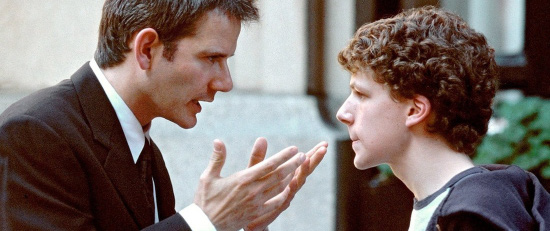
It’s now 2024, and prototypical alpha-males like Andrew Tate and the Liver King have long been seen as caricatures of their own archetypes, but the desire for a greater internal masculinity in society is not a fad. Whether or not you personally believe that masculinity is an intangible social construct, the fact of the matter is that many members of American society feel its omnipresent effects on an identifiable emotional level. Pew Research Center found that right before the COVID-19 pandemic, manly stereotypes like having multiple sexual partners and being ready to fight if provoked were viewed as implicit standards by a plurality of American men. While the research mentions other pressing factors on manhood, the expected notion of philanderer status in men is one that seems to have never lost its allure. Pop-culture has taken note throughout the 21st century — where sex is seen as either an absurd or severely important conquest in a young man’s life — in films like Superbad (2007) and Licorice Pizza (2021). In the films mentioned, these are cases of teenagers or young adults understanding societal expectations and self-enforcing the pressure of them, but what happens when this notion is not only mainstream, but seemingly life-weary, self-proclaimed mentors — like the influencers mentioned before — are reaffirming and forcefully pushing these ideas onto young and impressionable minds? Then, you have Roger Dodger (2002).
Roger Dodger was conceived as the rebellious offspring to New York City’s, and America’s at-large, post 9–11 reinvigoration of exceptionalism. Between former President George W. Bush’s rhetoric on preserving nuclear families and American interventionism for the sake of cultural isolationism, Roger (Campbell Scott) responds with a big “f**k you.” What if I want to prioritize my personal pleasure over my capitalistic career? What if I voluntarily excommunicated my family? What if the only way I am going to tolerate spending time with my estranged nephew is by getting him laid for the first time? While insufferable proclamations to most, the last part is all that mattered to Nick (Jesse Eisenberg), whose mother — who Roger has been ignoring calls from — said to board with his uncle for the night after he visits Columbia University rather than making the long trip back home to middle-America Ohio.
No offense to any of the 0 Ohioans reading this, but the state is scarcely in the news other than for LeBron James and political referendums, but that has changed with the vice-presidential nomination of JD Vance onto former President Donald Trump’s Republican presidential ticket. Vance, who is infamously from rural Ohio, has espoused all of the same nativist and borderline eugenicist theology of early 2000s Bush but with a modern flare of hyperbole and exclusivity. Roger, while refusing to acknowledge his roots after making the big-city move to NYC, is also from Ohio, and his migration to the heartland of American consumerism epitomizes the masculine tropes that both Bush and Vance have invoked. Roger works for an advertisement agency, where he bluntly tells Nick that his job is to make people feel bad and desire more products to fill that emotional hole. Both Vance and Bush had the same strategy; they were not only telling people what they needed but reprimanding those who deviated. Nate, a teenager with a still-malleable mind and a single mother, instantly attaches himself by the hip to Roger in order to be taught the ways of social dominance by his uncle who presents himself as a master.
Roger is comically calculated in his sexual endeavors and treatment of women, eerily similar to an Andrew Tate type. He begins teaching Nate how to spot women that have subversively revealed their sexuality through the likes of physical promiscuity and how to ogle them in extremely perverted ways. I say perverted because that’s how most, including myself, see Roger, but Roger would disagree; he has gamified sex and is simply just teaching Nate the cheat codes. Roger even goes as far as to explicitly acknowledge this by referencing NBA greats like Michael Jordan and Magic Johnson, the latter of whom he takes inspiration for in describing debaucherous desperation as a more positively-connoted “winning time.”
Over the course of the film, you want to hate Roger for all his misogyny and neglect for the congenial manners of society but instead of being revolted by his self-righteousness, you are entranced with empathetic disgust. Roger is an overtly unhappy and self-conscious man that has projected his inner demons onto women with the hope that they like his surface-level enough not to delve any deeper. This is foolhardy, and Roger eventually realizes it through his sunken relationship with Joyce (Isabella Rossellini) and the torturous night that he puts Nate through. Still, this facade has gone on so long for Roger that he finally decides that since his generational peers cannot stand it anymore, he will try to reproduce it through future generations a la Nate. And this is how someone like Andrew Tate or those who mistakenly interpret the symbolism of a Patrick Bateman (American Psycho) are born: mold the uninformed and underdeveloped to create a future of people more similar to you and in the process, perpetuating the same pressures to forthcoming generations that had harmed you and so many others in the first place. The cycle repeats.
























